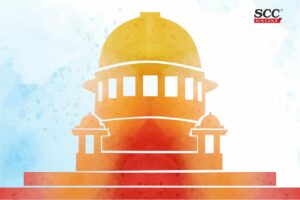Supreme Court: In an appeal against the Himachal Pradesh High Court judgment which dismissed a petition after noticing that the appellant has an alternate remedy available, the bench of Dr. DY Chandrachud and MR Shah, JJ has summarised the principles related to the maintainability of a writ petition before High Courts.
Two important judgments on the “rule of alternate remedy”
Whirlpool Corporation v Registrar of Trademarks, Mumbai, (1998) 8 SCC 1
“Under Article 226 of the Constitution, the High Court, having regard to the facts of the case, has a discretion to entertain or not to entertain a writ petition. But the High Court has imposed upon itself certain restrictions one of which is that if an effective and efficacious remedy is available, the High Court would not normally exercise its jurisdiction. But the alternative remedy has been consistently held by this Court not to operate as a bar in at least three contingencies, namely, where the writ petition has been filed for the enforcement of any of the Fundamental Rights or where there has been a violation of the principle of natural justice or where the order or proceedings are wholly without jurisdiction or the vires of an Act is challenged.”
Harbanslal Sahnia v Indian Oil Corpn. Ltd, (2003) 2 SCC 107
“In an appropriate case, in spite of availability of the alternative remedy, the High Court may still exercise its writ jurisdiction in at least three contingencies: (i) where the writ petition seeks enforcement of any of the fundamental rights; (ii) where there is failure of principles of natural justice; or (iii) where the orders or proceedings are wholly without jurisdiction or the vires of an Act is challenged.”
Principles summarised by the Court
(i) The power under Article 226 of the Constitution to issue writs can be exercised not only for the enforcement of fundamental rights, but for any other purpose as well;
(ii) The High Court has the discretion not to entertain a writ petition. One of the restrictions placed on the power of the High Court is where an effective alternate remedy is available to the aggrieved person;
(iii) Exceptions to the rule of alternate remedy arise where
(a) the writ petition has been filed for the enforcement of a fundamental right protected by Part III of the Constitution;
(b) there has been a violation of the principles of natural justice;
(c) the order or proceedings are wholly without jurisdiction; or
(d) the vires of a legislation is challenged;
(iv) An alternate remedy by itself does not divest the High Court of its powers under Article 226 of the Constitution in an appropriate case though ordinarily, a writ petition should not be entertained when an efficacious alternate remedy is provided by law;
(v) When a right is created by a statute, which itself prescribes the remedy or procedure for enforcing the right or liability, resort must be had to that particular statutory remedy before invoking the discretionary remedy under Article 226 of the Constitution. This rule of exhaustion of statutory remedies is a rule of policy, convenience and discretion; and
(vi) In cases where there are disputed questions of fact, the High Court may decide to decline jurisdiction in a writ petition. However, if the High Court is objectively of the view that the nature of the controversy requires the exercise of its writ jurisdiction, such a view would not readily be interfered with.
Background
In the present case, the High Court had dismissed the writ petition instituted under Article 226 of the Constitution challenging orders of provisional attachment on the ground that an alternate remedy is available. The appellant challenged the orders issued on 28 October 2020 by the Joint Commissioner of State Taxes and Excise, Parwanoo provisionally attaching the appellant’s receivables from its customers. The provisional attachment was ordered while invoking Section 83 of the Himachal Pradesh Goods and Service Tax Act, 20172 and Rule 159 of Himachal Pradesh Goods and Service Tax Rules, 20173 . While dismissing the writ petition challenging orders of provisional attachment the High Court noted that although it can entertain a petition under Article 226 of the Constitution, it must not do so when the aggrieved person has an effective alternate remedy available in law.
[Radha Krishna Industries v. State of Himachal Pradesh, 2021 SCC OnLine SC 334, decided on 20.04.2021]
*Judgment by Justice Dr. DY Chandrachud
For appellant: Senior Advocate Puneet Bali, learned senior counsel appearing on behalf of the appellant
For State of Himachal Pradesh: Advocate Akshay Amritanshu

